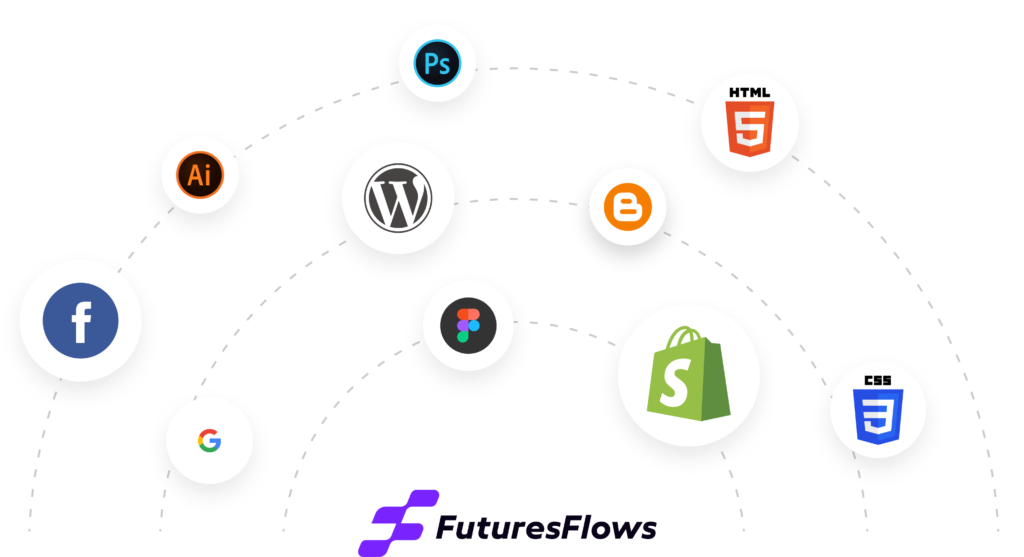An effective ecommerce strategy is essential for driving growth and success in the competitive online marketplace. It involves comprehensive planning and execution to attract, engage, and convert customers while maximizing revenue and profitability. Key components of an ecommerce strategy include market research to identify target audiences and competitors, website design and optimization for seamless user experience and conversions, product assortment and pricing strategies to meet customer needs and competitive positioning, marketing and promotional tactics to drive traffic and sales, as well as customer service and fulfillment processes to ensure customer satisfaction and loyalty.
Crafting a successful ecommerce strategy requires meticulous planning and execution to thrive in the competitive online market. It involves targeted market research, strategic website design, and optimization, as well as effective product assortment, pricing, and marketing tactics. By prioritizing customer satisfaction and leveraging data analytics for continuous improvement, businesses can create a dynamic ecommerce strategy that drives growth, conversions, and long-term success in the digital realm.

Launch a revenue-driving site with FutureFlows, our proprietary platform:
Access FutureFlows benefits with our web design services.


Market research is the foundation of an effective ecommerce strategy. It involves analyzing market trends, identifying target audiences, understanding customer preferences and behavior, and assessing competitors.
By conducting thorough market research, businesses can gain valuable insights into their industry landscape, customer needs, and competitive positioning, allowing them to tailor their ecommerce strategy accordingly.
Strategic product assortment and pricing play a crucial role in attracting and retaining customers.
Ecommerce businesses should carefully curate their product offerings to meet customer needs and preferences while also considering factors such as pricing competitiveness and profit margins. Implementing dynamic pricing strategies, bundling options, and promotional offers can help optimize sales and maximize revenue.
Regular analysis of product performance and market trends can inform adjustments to product assortment and pricing strategies to stay competitive.
Effective marketing and promotional tactics are essential for driving traffic and sales to an ecommerce website. This includes leveraging various digital marketing channels such as search engine optimization (SEO), pay-per-click (PPC) advertising, email marketing, social media marketing, and influencer partnerships. Businesses should develop targeted campaigns and promotions to reach their target audience and incentivize purchases. Monitoring and analyzing campaign performance metrics can help refine marketing strategies and optimize ROI.
Providing exceptional customer service and efficient fulfillment processes are critical for building customer trust and loyalty. Ecommerce businesses should invest in responsive customer support channels, such as live chat, email, and phone support, to address customer inquiries and concerns promptly. Additionally, optimizing order fulfillment and shipping processes to ensure timely delivery and accurate order tracking can enhance the overall customer experience. Continuous monitoring and improvement of customer service and fulfillment processes are essential to maintain customer satisfaction and retention.
Leveraging data analytics and insights is essential for monitoring performance, identifying trends, and making informed decisions to optimize the ecommerce strategy.
Businesses should track key performance indicators (KPIs) such as website traffic, conversion rates, average order value, and customer lifetime value to measure success and identify areas for improvement. Analyzing customer behavior, purchasing patterns, and market trends can provide valuable insights for refining product offerings, marketing strategies, and overall business operations.
Regularly reviewing and interpreting data analytics allows businesses to adapt and evolve their ecommerce strategy to stay competitive in the dynamic digital landscape.

Calculate the potential return on investment (ROI) that clients can expect from investing in the package, taking into account factors such as increased sales

Build flexibility and scalability into the pricing structure to accommodate the evolving needs and growth of clients' businesses.

Solicit feedback from clients who have purchased the package to understand their perception of its value and effectiveness.
CEO, Renewable Energetics
“Working with Futures Flows was a game-changer for our business. Their team’s expertise and dedication helped us achieve our goals faster than we ever imagined. Highly recommend their services!”

CEO, Plant Paradise Designs
“I’ve had the pleasure of collaborating with Futures Flows on multiple projects, and each time they have exceeded my expectations. Their professionalism, creativity, and attention to detail are unmatched.”

CEO, Luxury Room Design
“I can’t thank the team at Futures Flows enough for their exceptional work. From branding to digital marketing, they have helped us stand out in a competitive market and attract new customers.”

CEO, Hotelfly Away
“Choosing Futures Flows was one of the best decisions we made for our brand. Their strategic approach and innovative solutions have significantly boosted our online presence and revenue.”

Marketing Manager at GHI Corporation
“Working with Futures Flows feels like having an extension of our own team. Their collaborative approach and commitment to our success make them a trusted partner for all our marketing needs.”

Benefit from straightforward, transparent pricing structures for top-tier web design services, ensuring clarity and confidence in your investment.






Data analytics involves the process of collecting, analyzing, and interpreting data to gain insights and make informed decisions.
For ecommerce businesses, data analytics plays a crucial role in understanding customer behavior, identifying market trends, and optimizing business performance.
By leveraging data analytics, businesses can track key metrics, such as website traffic, conversion rates, and customer engagement, to measure success, identify opportunities for improvement, and make data-driven decisions to drive growth and profitability.
Ecommerce businesses can analyze a wide range of data to gain insights into various aspects of their operations.
This includes customer data, such as demographics, preferences, and purchasing behavior, website data, such as traffic sources, page views, and bounce rates, as well as sales data, inventory data, and marketing campaign performance data.
By analyzing these data sets, businesses can identify patterns, trends, and opportunities for optimization across different areas of their ecommerce operations.
Data analytics enables ecommerce businesses to better understand their customers’ needs, preferences, and behaviors, allowing them to tailor their offerings and user experience accordingly.
By analyzing customer data, businesses can personalize product recommendations, optimize website navigation and usability, and implement targeted marketing campaigns to engage and retain customers.
Additionally, data analytics can help identify pain points in the customer journey, enabling businesses to address issues and improve overall satisfaction and loyalty.